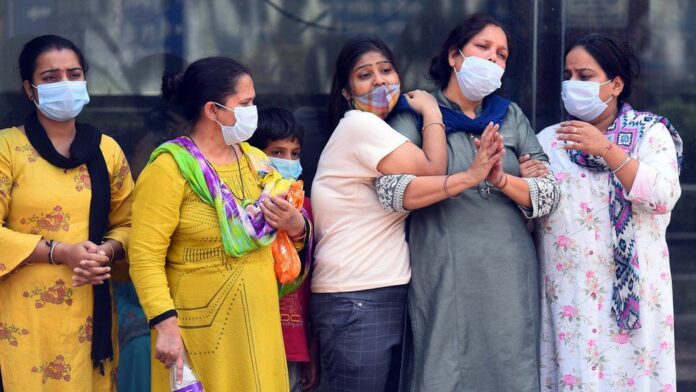By Anna Nguyen,
If one could observe what is happening in the world right now, they would see quite a few paradoxes. Specifically, on one hand there are western countries that have steadily overcome the fight against the coronavirus and therefore begun the opening of restaurants and shops, whilst on the other hand there are countries that are now having the crucial battle against this virus such as India. Unfortunately, at the time being, India holds a new world record that no one would ever be proud of.
India is one of the most populous countries in the world with 1,37 billion people (2019), coming second only to China. Countries that were hardly hit during this pandemic, were the ones that were densely populated and poor. COVID-19 is a disease that is transmitted via airdrops that come by speaking, sneezing, coughing and that is why face masks became mandatory. Despite the face masks, another thing that citizens had to comply with is keeping at least 2m distance from each other so as to limit the transmission. However, with such a population the latter is difficult to be followed. What were the reasons though that led to a crisis that seems to not be under control?

First and foremost, a crucial factor that all countries worldwide realized that they lacked of, is preparedness for this kind of crises. Combined with the fact that quite a few countries are not financially ready to deal with them, led to the uncontrollable spread of the virus which for over a year has been torturing humanity. We have all heard that the situation in India is getting worse than better. Regardless of the fact that India is one of the fastest growing economies, still it is not prepared for something like this. It shall not be forgotten that India is amongst the poorest countries globally and under the fear of worsening even more its economy, the Indian government has not imposed a national lockdown despite the high number of cases and deaths that occur each day. Prime Minister Narendra Modi has been criticized for not properly handling the crisis, not taking into account the death tolls and the hospital’s cry for help. Yet, the Prime Minister held campaign rallies and did not cancel a Hindu festival that was attended by a significantly large number of people. It not unjustifiable that the Vice-President of the Indian Medical Association, Dr. Navjot Dahiya, called him a “super-spreader”.
Did the Prime Minister’s ambitions undermine his logical thinking of imposing measures that would ensure public health? One would answer positively to this question, especially after seeing the heartbreaking images of the crematoriums and the overwhelmed hospitals. A lot of people are dying every day in India and at the moment the situation seems to be a chaos. Nonetheless, the situation this country was not always like this. When SARS-CoV-2 made its first appearance in 2020, the Prime Minister did not waste his time by accusing China and turn it into a political game. On the other hand, he encouraged his citizens to wear masks and to keep social distancing. He also imposed a national lockdown when the first cases appeared. While the aforementioned move led to many migrant workers jobless, it was a measure that facilitated the successful containment of the virus.

Probably India fell into the trap of seeing things getting better and decided to lift the lockdown so as to return to where they were before the COVID-19 disease. The setback was that the situation was still immature to let it go. In January, Modi stated in the World Economic Forum that “the country has saved humanity from a big disaster by containing corona effectively”. The number of cases showed a decrease and that was when the government decided to lift the measures but not after long time, India is back to where it was and maybe worse. Possibly the Indian government, overestimated the effectiveness pace of people’s vaccination. Hospitals are full with patients that cannot be treated as there is a shortage of oxygen. This triggered an international aid in order to tackle this surge. Despite the immediate response, there have been claims that the foreign aid has not been received, especially in smaller villages. There have been accusations about lack in information, precisely, that there was no guidance about where and to whom the aid must be distributed. Therefore, this miscommunication resulted in the delay of deliveries that cost people their lives. That is why, healthcare workers underline the significance of having national oxygen plants and not depend on foreign assistance.
COVID-19 has changed significantly people’s lives and for many it has cost their lives. What we surely know is that it is not something that must be dealt lightly. It is an important matter that has shown the significance of public health and its investments for it i.e., healthcare systems. Let’s hope that India will survive this deadly second wave of the pandemic, as well as the rest of the world.
References
- Al Jazeera, India’s Modi slammed for COVID handling amid spiraling crisis, Available here
- Hunter, J., India COVID aid: Is Emergency Relief Reaching Those In Need?, BBC News, Available here
- Pandey, G., Covid in Varanasi: Anger rises as coronavirus rages in Modi’s constituency, BBC News, Available here




